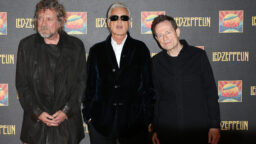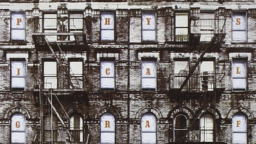Led Zeppelin’s long-running copyright battle over their classic ’70s song Stairway to Heaven has resulted in a huge victory for the British rock band, as well as their publishing and record label partner, Warner Music Group.
The ninth Circuit Court of Appeals ruled today (March 9) that Stairway to Heaven did not infringe Spirit’s Taurus, upholding the jury verdict given in 2016, which originally cleared the band.
The lawsuit, brought by Randy Wolfe estate trustee Michael Skidmore in 2014, accused Robert Plant and Jimmy Page of ripping off the opening riff for their song from Taurus, by Wolfe’s band Spirit.
Skidmore, on behalf of the estate, sought recognition, plus a share of the royalties earned.
Skidmore became a co-trustee of the Trust in 2006 after the death of Wolfe’s mother who established the Randy Craig Wolfe Trust following Wolfe’s death in 1997.
As explained in the post ruling opinion document, “Neither Wolfe nor his mother filed a suit regarding Stairway to Heaven. Fast forward forty-three years from the release of Stairway to Heaven to May 2014.
“Skidmore filed a suit alleging that Stairway to Heaven infringed the copyright in Taurus, naming as defendants Led Zeppelin, James Patrick Page, Robert Anthony Plant, John Paul Jones, Super Hype Publishing, and the Warner Music Group Corporation as parent of Warner/Chappell Music, Inc. (‘Warner/Chappell’), Atlantic Recording Corporation, and Rhino Entertainment Co. (collectively ‘Led Zeppelin’).”
After Plant and Page were cleared of copyright infringement in June 2016, the US Appeals Court decided to revisit the case after a Ninth Circuit three-judge panel ruled 3-0 in September 2018 that “erroneous jury instructions” were provided by the judge in the initial trial, and namely that the jury weren’t played the recordings of Taurus or Stairway To Heaven.
Last August, in a rare show of support by the US Government in a copyright case of this nature, the Department Of Justice filed an amicus brief (friend of the court brief) stating, amongst other things, that “the allegedly infringing work is not virtually identical”.
According to the summary of the opinion of Judge McKeown: “In Part I, the en banc court held that the 1909 Copyright Act, which does not protect sound recordings, rather than the 1976 Copyright Act, controlled its analysis because the copyright at issue was for the unpublished musical composition of Taurus, which was registered in 1967.
“The scope of the copyright in the unpublished work was defined by the deposit copy, which in the case of Taurus consisted of only one page of music.
“Accordingly, it was not error for the district court to decline plaintiff’s request to play sound recordings of the Taurus performance that contained further embellishments or to admit the recordings on the issue of substantial similarity.
The court also rejected the inverse ratio rule, “which requires a lower standard of proof of substantial similarity when a high degree of access is shown”.
Music Business Worldwide





